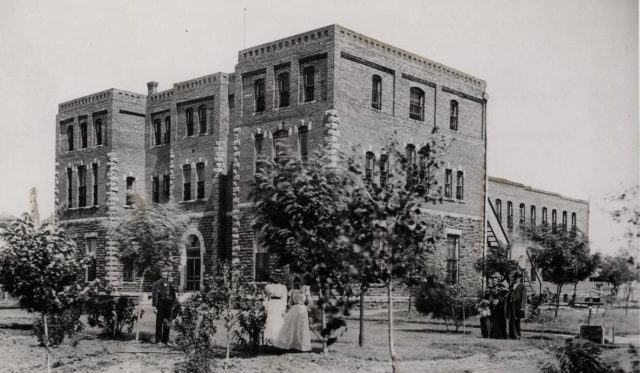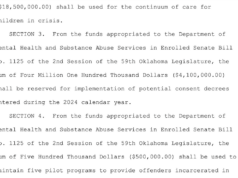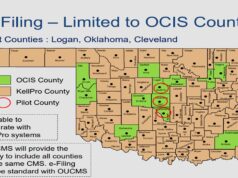

Afriend recently told me that she is worried about her 24-year-old son. His behavior has changed over the past few months. He is having difficulty meeting his work and family responsibilities. He is sleeping excessively and beginning to isolate himself socially from his friends. He has lost interest in watching sports on television, which is his favorite pastime. In fact, she explained, not only has he lost interest in sports, it seems like he has lost interest in everything else, too. “Last night,” she said through tears, “he told me he doesn’t think he has a future.”
My friend expressed deep worry that her son may be severely depressed and that he might hurt himself. When she spoke with him about her concerns and suggested he get help, however, he refused. “What can I do?” she asked me. “Can I force him to get help?”
This seemingly simple question does not have an easy answer. Oklahoma allows its citizens the power to refuse medical treatment. If a person refuses medical treatment, their decision must be respected, even if it is believed that refusing this treatment could result in that person getting sicker or eventually dying.
RELATED
How to find a therapist in Oklahoma by Jeanette Moore
This is one of the trickiest areas of mental health care and one that can be hard for a worried mother to understand. But these regulations exist for a reason. The right to refuse medical treatment is a fundamental right for all Americans. Inferred through the Fourteenth Amendment of the U.S. Constitution and further codified through several judicial court cases, the ability to refuse medical care stands at the core of each person’s right to decide what happens to their own body.
Though it is difficult to watch a person suffer when we feel certain they could be helped, it is important to remember that we must protect every person’s right to autonomy.
Laws governing involuntary commitment
There are very specific circumstances in which a person’s liberty can be taken away in Oklahoma without a court hearing, without a presiding judge and without legal representation.
Involuntary commitment, also known as emergency detention, allows for someone to be held against their will if there is “a substantial risk of immediate physical harm” to the person or to someone else when this danger is the result of a mental illness or substance abuse.
Because confining a person involuntarily is such a big deal, the criteria of “substantial risk of immediate harm” is narrowly defined. If someone, for example, is only thinking of harming themselves at some vague point in the future, without a specific plan or without the actual means to harm themselves, it is unlikely they will meet this “substantial risk” requirement. Likewise, although the homeless man walking down the street and talking loudly to himself may seem clearly in need of help, he will likely not meet the requirements needed for involuntary confinement on that basis alone.
In cases where a person does meet the criteria, the procedure for involuntary confinement is very specific. Under Oklahoma’s Mental Health Law, only a licensed mental health professional can determine whether an involuntary confinement is appropriate and must write a petition detailing the facts of the situation.
If this petition is approved by a judge, a person can be held against their will for up to 120 hours (excluding weekends and holidays) in a mental health facility. During this short confinement, the person is offered medical and clinical treatment. Everything possible is done to encourage the person to voluntarily accept the mental health care. Interestingly, even under an involuntary confinement, the person can refuse to accept the offered care.
If the mental health facility is unable to stabilize the person within the 120 hours, additional confinement might be approved if, after an evidentiary hearing, the court determines that the immediate substantial risk of harm remains.
If it is determined that the immediate danger of harm has passed, the person is allowed to return home. At the time of discharge, the mental health facility sets up a safety plan that includes appointments for additional outpatient treatment services. The right to refuse treatment stands strong, however, and the person can refuse to participate in these follow-up services.
A dark history
These strict requirements for involuntary confinement are a fairly recent phenomenon. Well into the 20th century, it was relatively easy to have people committed against their will. People whom we would not consider seriously mentally ill today often ended up imprisoned in mental institutions. Sometimes, the laxness of the standards even led to situations in which people had spouses or family members committed for personal convenience.
To someone in my friend’s situation, the existing system might seem frustrating, and it is perhaps not perfect, but it is important to remember that it is in place to prevent abuses that were happening in the not too distant past.
So my friend cannot force her adult son to get the mental health medical care she thinks he needs. She can, however, continue to suggest that he get help. She can cajole, exert pressure and otherwise do her best to persuade him to seek help. She can call the local mental health clinic, a private counselor or a primary care physician to request guidance. Many counselors will make house calls and are available by phone or for a video call.
And it is worth remembering that mental health care is important for everyone, not just for those who are in a crisis. One of the best things we can do for those who struggle with mental illness is to make these services easily accessible and stigma-free so that as many people as possible can access care early, often and by their own free will.





















